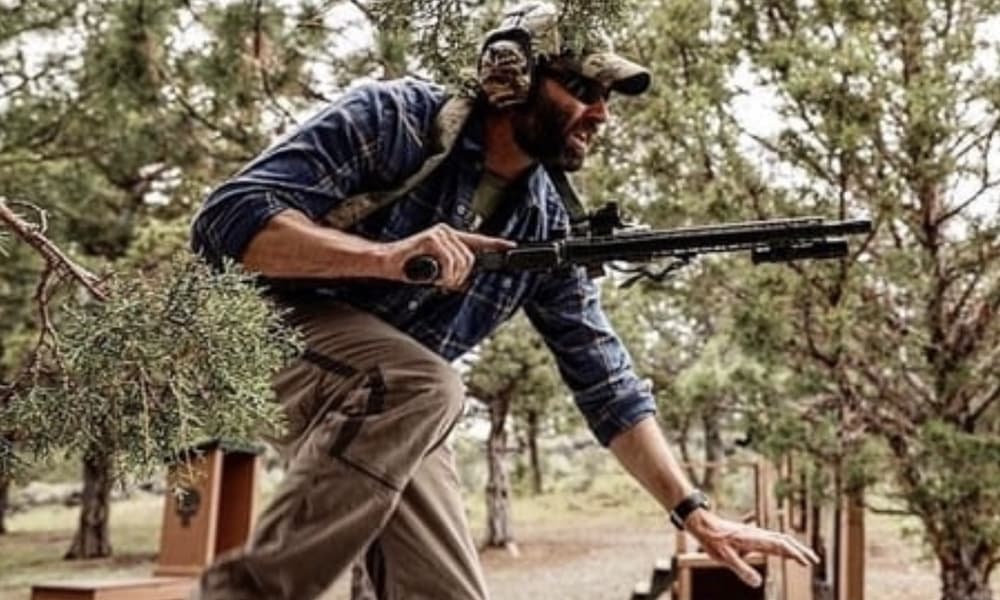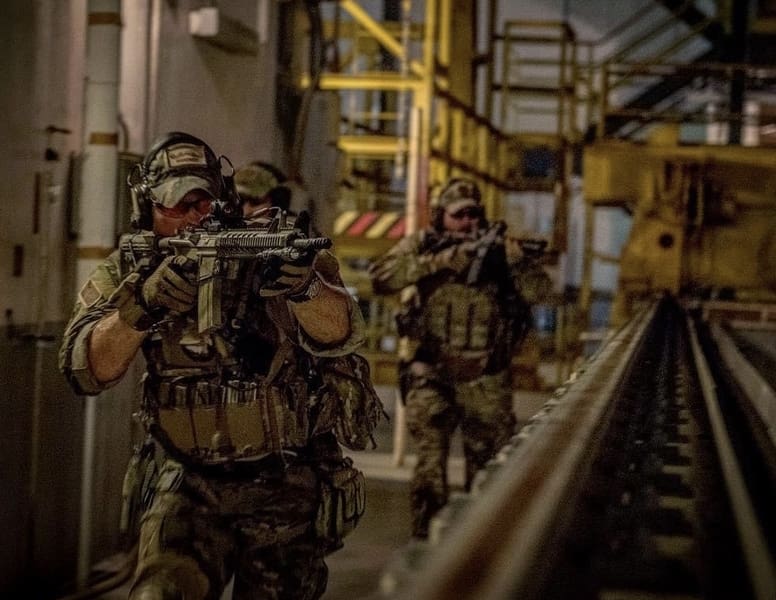What the enemy has learned by watching us in Iraq and Afghanistan over the last twenty years!
Jack Carr: Our enemies are studying us and applying those lessons into future battle plans.
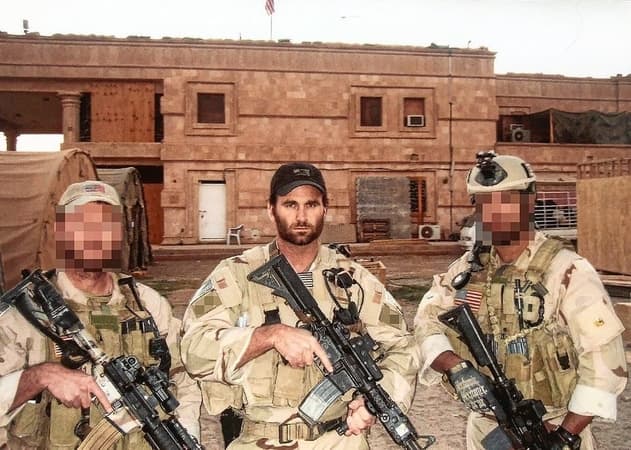
About Jack Carr
Jack Carr is a former Navy SEAL who led special operations teams as a Team Leader, Platoon Commander, Troop Commander and Task Unit Commander. He is author of four New York Times Bestseller List novels: The Terminal List, True Believer, Savage Son, and The Devil’s Hand.
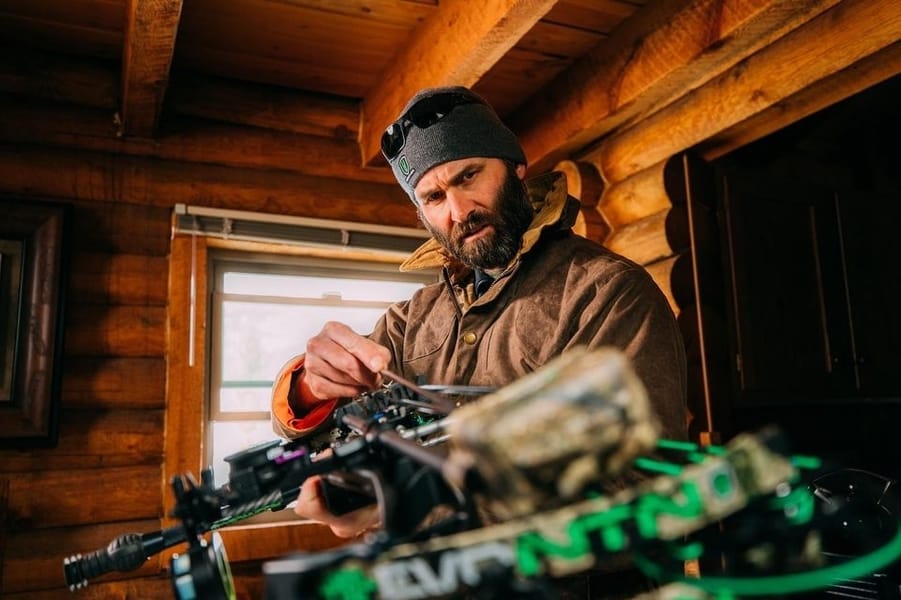
The Interview
Jack Carr is a former Navy SEAL who led special operations teams as a Team Leader, Platoon Commander, Troop Commander and Task Unit Commander.
Over his 20 years in Naval Special Warfare, he transitioned from an enlisted SEAL sniper to a junior officer leading assault and sniper teams in Iraq and Afghanistan.
He went on to become a platoon commander, practicing counterinsurgency in the southern Philippines.
He eventually commanded a Special Operations Task Unit in the most Iranian influenced section of southern Iraq throughout the tumultuous drawdown of US Forces.
Jack retired from active duty in 2016 and lives with his wife and three children in Park City, Utah.
He is author of four New York Times Bestseller List novels: The Terminal List, True Believer, Savage Son, and The Devil’s Hand.
In this interview, he talks with Thomas Lojek about the evolution of the thriller genre, the future battle plans of our enemies and what scenarios we have to be prepared for in a chaotic world facing complex threats and many unknowns.
It is so interesting that we see things coming full circle
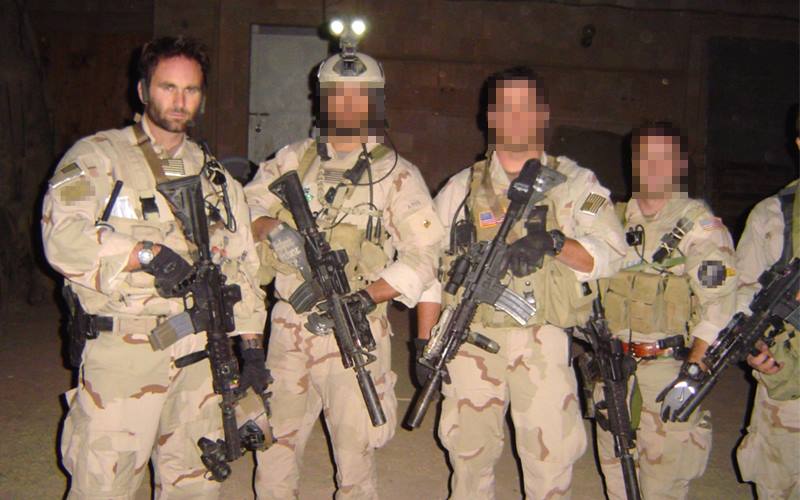
Thomas Lojek: These days, there seems to be a significant shift in the thriller genre – from threats with origins from outside the USA to domestic threats and conspiracies inside the USA.
In the 70s and 80s, there was a very clear rule within the thriller-genre: the Russians are the bad guys.
Then, after the end of the cold war area and the 9-11 attacks, the jihadist threat took over the role as the global enemy.
Now, it seems to become an even more uneasy world where you can’t trust anybody anymore, not even the genre rules of who should be the bad guys.
Jack Carr: The thriller genre is always evolving. My goal was always to move the ball forward.
I am a student of the genre and have been for as long as I can remember.
My mom is a librarian, so I was introduced to reading very early and grew up with a love of books.
And I think you are right. There are these different periods you can identify in the genre with distinctly different threats.
In incorporating what is timely or even just over the horizon, you give readers a touch point through which they can relate to the narrative, so I think it makes sense for thriller authors to incorporate real-world events into their fiction.
There are commonalities to the thriller regardless of timeframe.
One of those is conspiracy. It hasn’t been in every thriller, but it is a very familiar theme to fans of the genre.
So, whether the enemy was the Soviet Union back in the day or it was a drug cartel or if it was a super-empowered individual or a jihadist – the element of conspiracy is one that I believe readers enjoy.
Sometimes they expect it to be woven into the storyline regardless of who the bad guys are.
Another familiar theme is that that often times politicians are bad guys. In real life they give us a lot of material to work with.
Incorporating them into a conspiracy, making them corrupt, certainly seems probable to those who follow the news.
So, I think today, you are right, we see a transition.
It is interesting to see how the genre is shifting a bit from the jihadist terrorism of the first two decades of the 21st century back to Russia again.
I incorporated the Russian mafia in my second novel as well as in my third novel.
It is so interesting that we see things coming full circle while also incorporating threats that didn’t exist back in the 70s and 80s.
Of course, today it is not the 1980s Tom Clancy type of Cold War Soviet threat.
Nor is it the 60s and 70s type of espionage, but we see do Russians involved in many plots again.
Having them as antagonists has evolved.
They are not portrayed as a country that wants to destroy another country.
Now it is far more complex.
We have Oligarchs. We have Russian government officials.
We have international corruption. We have the Russian mafia, and we have them all over the world.
It is really interesting to explore.
We have seen things happen that would have seemed impossible just ten years ago
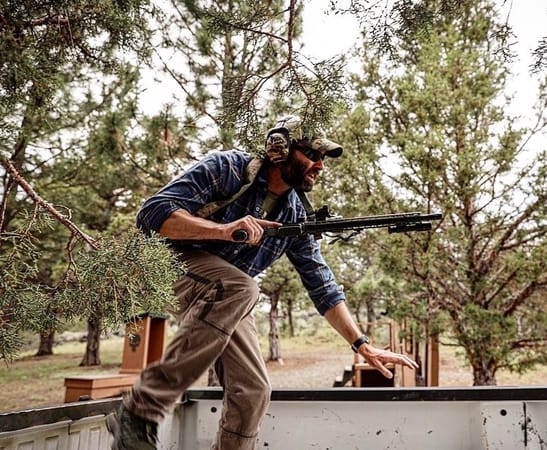
Thomas Lojek: What makes a great villain for you?
A bad guy that makes your novel great and your protagonist suffer.
Because being a writer myself, I truly know: Writing a bad guy is not an easy task.
If he is just plain evil he becomes one dimensional and readers will find him boring.
If he is too nice to be a full scale adversary who is able to hurt your hero on all levels of his life the readers won’t hate him enough to get involved emotionally in your story.
Can you tell us something about your approach to writing a great bad guy?
Jack Carr: First, I have to write a likeable protagonist. That is very important to me, and it is not always the case in novels.
It was important for me to create a genuinely likeable protagonist in James Reece because in my books he has to do things that the readers have to forgive him (for).
And on the flipside, there is the antagonist, the bad guy.
And you have to make the reader despise the bad guy and want the good guy to something horrible to him (when the story reaches its climax).
But I also have to make him someone who seems like a real person, not just a James Bond movie villain.
I want to write him or her as a person who could possibly exist.
Today especially it seems we have been given so much material by people in power.
We have seen things happen that would have seemed impossible just ten years ago.
Now, some of the events that would have required the suspension of disbelief in years past have actually happened!
So now, as an author, you get to work with that as well.
I think it is fascinating. It is fun to develop these characters, especially the bad guys.
I think it is important to have character-driven books, regardless of genre, to have characters who people can relate with.
Either it is cheering for the protagonist.
Or it is wanting to see how the scheme of the antagonist turns out.
I think my approach has a lot to do with the books that I read growing up.
I read Tom Clancy, Nelson DeMille, David Morrell, J.C. Pollock, A.J. Quinnell, Marc Olden, and they all had protagonists with backgrounds that I wanted to have in real life one day.
I identified with their protagonists – they had certain skills that I wanted to have one day.
I still remember their characters – maybe that’s why I focus on character.
That is my approach to writing my novels, including the bad guys – creating memorable characters who could be real people.
Luckily, through my life experience I have a lot to work with…
Of course, I also remember the plots, but I remember building a relationship with the characters the way you would with a friend.
That built life-long relationships with the authors through their work.
A great setting is important as well as it can work just like the characters in a novel.
You can place the action in an area that people have a connection with.
Maybe they have a personal connection to the location already or perhaps they want to go there one day.
You can transport them there through the narrative.
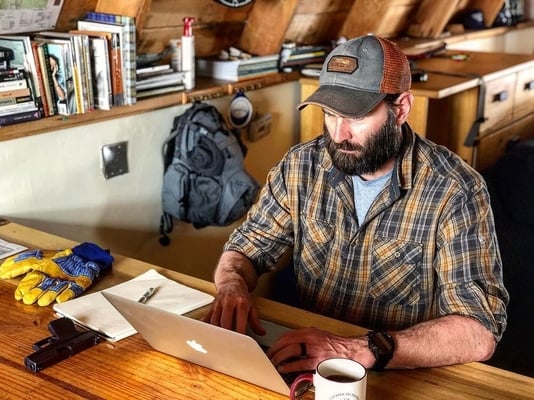
A deep look into what the enemy has learned by watching us in Iraq and Afghanistan over the last twenty years
Thomas Lojek: Do you think we will have a hard time as thriller writers after the years 2020 and 2021?
I mean, this years in retrospect reads like the sum of all thriller novels…
… from riots, to unrest, to stock market crashes, to governmental crisis, rising international tensions, and of course COVID-19…
… the virus that works like it came directly from one of these biotech thriller books we had read for decades.
How can we impress our readers after these years with a plot that scares them as well as entertains them with a scenario that feels like “that might happen”?
Jack Carr: I think, authors will do different things because it was such a tough year.
I heard a few authors talking about writing more for “escape” now, which I understand.
They want to give readers an escape from reality in their next novels.
But for me, COVID, the riots in the United States, having a tenuous political situation – it was all so front and center, it would be hard for me not to incorporate those events into my latest novel.
People are so connected to it and it has impacted their lives in such drastic ways and has changed the course of history.
Jobs, health and the direction of the country are in the forefront of the people’s minds.
And I understand jumping into a novel to escape.
But I am writing about events that are so current I couldn’t not incorporate the events of the past years into The Devils’s Hand.
I feel that I not only have to acknowledge these events but also incorporate them into the storyline.
I cannot discount what has happened in the United States.
And what has happened around the world and continue along, because our enemies are also studying our response to the events of 2020/21 and applying those lessons into future battle plans.
My novel, The Devil’s Hand, really takes a deep look into what the enemy has learned by watching us in Iraq and Afghanistan over the last twenty years along with what they learned prior to the 21st century evolution of terrorism; and how have they applied it to what they learned in the 70s, 80s and 90s.
They have been studying, adapting and applying all those lessons to future battle plans.
I also was researching bioweapons well before COVID.
I was reading about the history of bioweapons, particularly from Word War II to present day.
What the Japanese did in World War II and what happened to their research at the end of the war.
When COVID hit, I was particularly hypersensitive to it because I was so emersed in the research for my fourth novel.
As I wrote and continued to study, I recognized that the enemy will incorporate our response to COVID into their plans.
They have watched the riots of the summer 2020 and early 2021.
They understand the political divisions in the United States between parties and ideologies.
They have studied our reaction to COVID.
They will use all that knowledge to their advantage, and I incorporated all this into my 4th novel The Devil’s Hand.
But you are right, 2020 and 2021 were quite an episode of interesting times when you think about it in terms of writing a thriller and thinking in terms of making it believable.
Photos by Jack Carr


